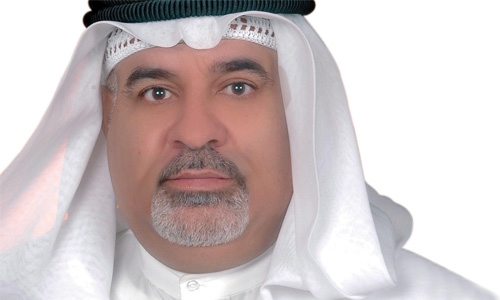Rights bodies being used as pressure tools: BHRWS
Manama : International human rights organisations are being used as pressure tools on Bahrain and other countries in the region to serve certain interests of some countries, Bahrain Human Rights Watch Society (BHRWS) General Secretary Faisal Fulad said yesterday.
“Reports issued by international rights organisations, such as Amnesty International, are usually utilised as pressure tools by some western governments to serve political and economic interests,” Fulad said, commenting on the latest report issued by Amnesty International on the human rights situations in the Kingdom. The report included a series of accusations against the authorities here.
“This has been happening not only to Bahrain, but other countries in the region such as Saudi Arabia, Egypt and other Middle Eastern states,” the activist said.
The report, titled “No One Can Protect You” and published yesterday, included various accusations of breaching human rights here.
It called for immediate release of individuals convicted in criminal and terror cases, allowing special rapporteurs to enter the Kingdom and demanded the international community to condemn the Bahraini authorities and apply pressure on it.
Fulad commented, “This report will be circulated among official international bodies, which will be demanded to comment it or take action. It will be used as a means to pressurise the Kingdom in international gatherings in many ways. The timing of publishing the report few days ahead of the convention of the 36th session of the United Nations Human Rights Council proves it.”
“Beside military, economic and political pressure, civil society establishments and organisations have been effectively utilised by many governments to apply pressure on countries, mainly in the Middle East region,” Fulad mentioned.
Biased
Fulad, who’s one of the founders of the first human rights groups in Bahrain in the late 1990s, accused the organisation of being biased and one-sided.
He explained that Amnesty International has teams in each country in the world reporting the human rights situations to it.
“We founded the Bahraini team almost two decades ago and continually coordinated with the organisation,” Fulad said.
However, Fulad said that the coordination between the organisation and the activists here took a major turn simultaneously with the implementation of the reforms launched by His Majesty King Hamad bin Isa Al Khalifa in the first five years of the new millennium.
“Human rights conditions were rapidly improving in Bahrain back then and we mentioned it in our reports. The organisation suddenly ceased any coordination with us by that time. It seemed as if the improvement in the human rights situations here is not what it was seeking after,” he said.
Fulad informed that since then, Amnesty International has assigned foreign rapporteurs, who are based in the UK and have never visited Bahrain, to provide information and updates on the human rights conditions here.
“These rapporteurs have been only sourcing their information from opposition societies and other incredible sources backed by Iran and other malicious parties,” it said.
“Even when they previously visited the Kingdom, they would meet with NGOs and official authorities here, but they would never quote them in their reports. This repeated again and again until they were denied entry to the country,” Fulad said, commenting on the organisation’s demand to allow its “special rapporteurs” to enter the Kingdom.
Related Posts

